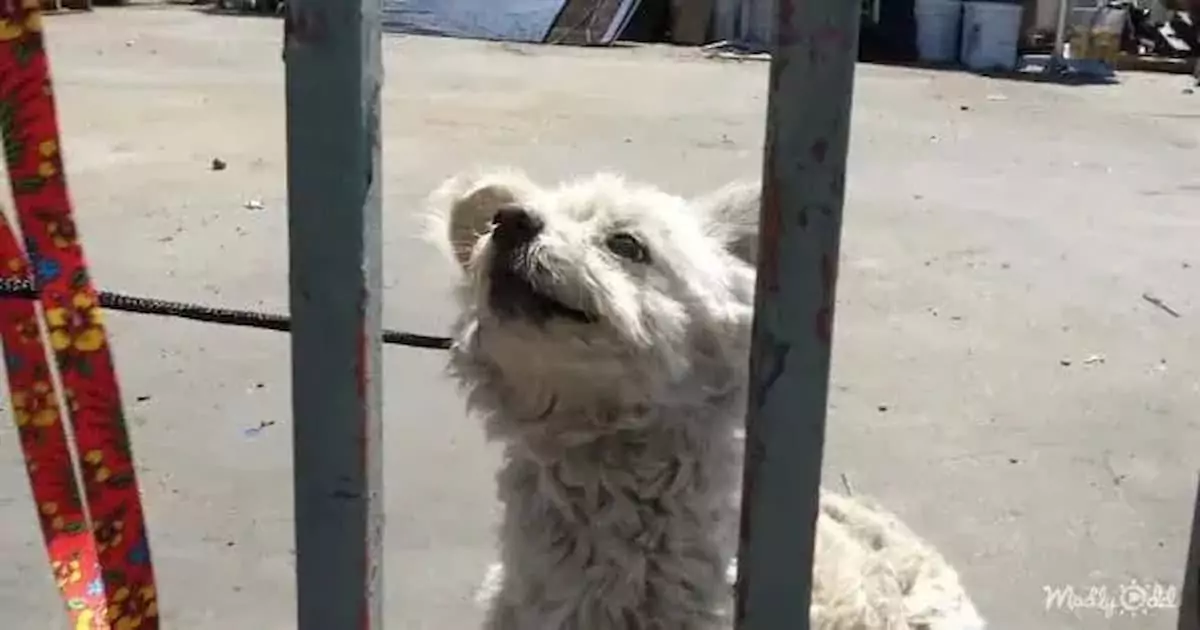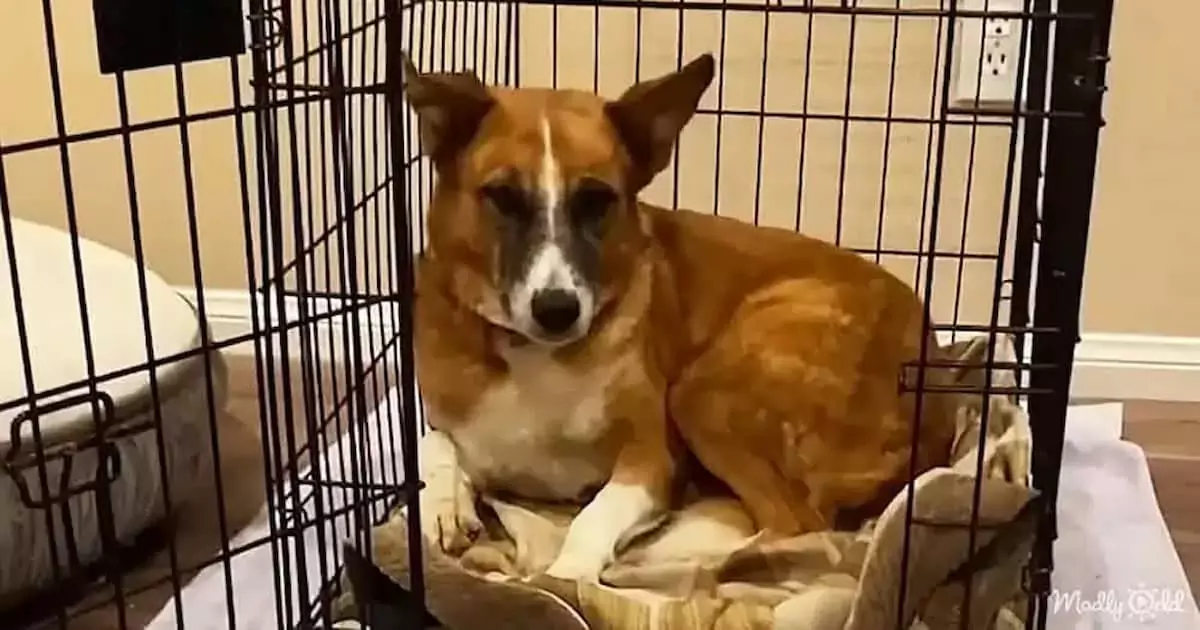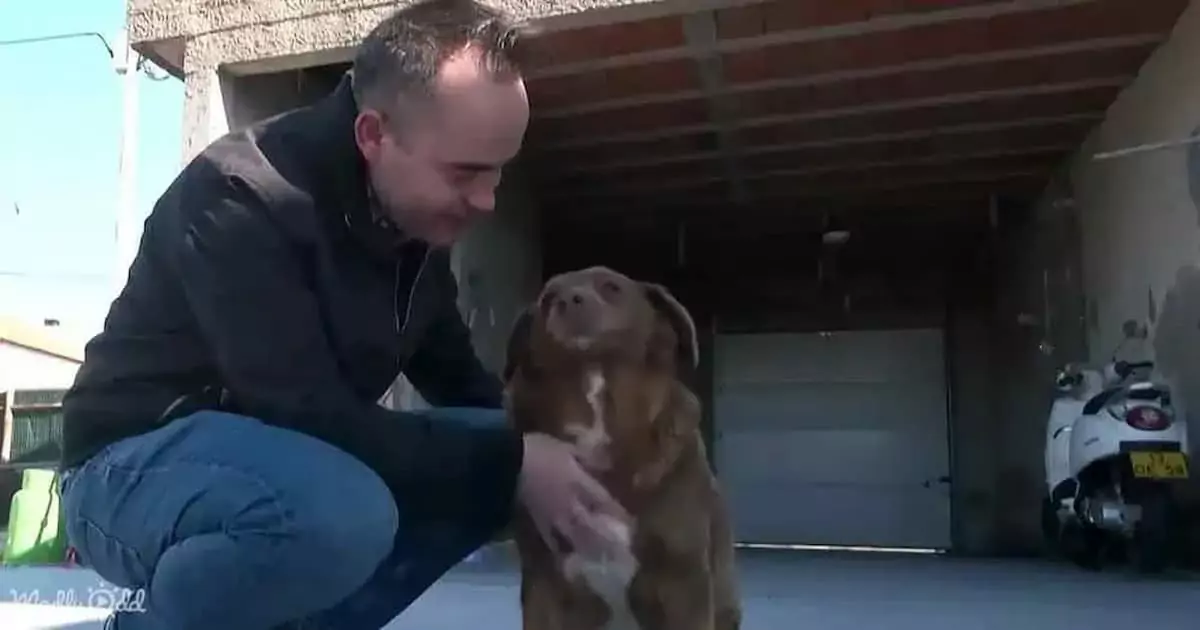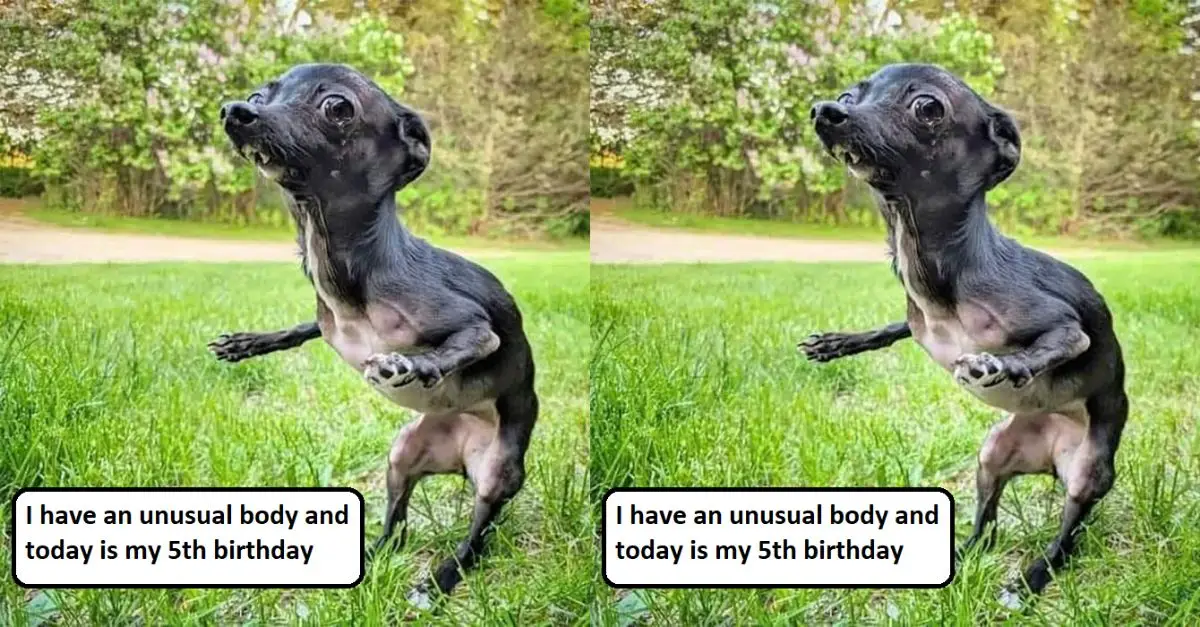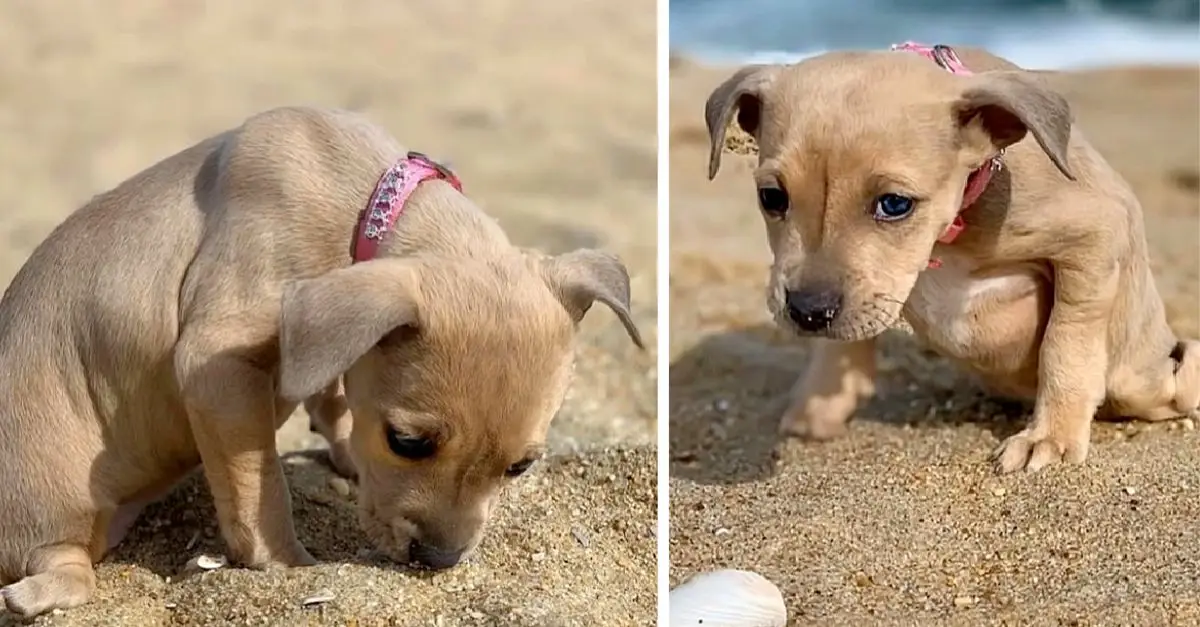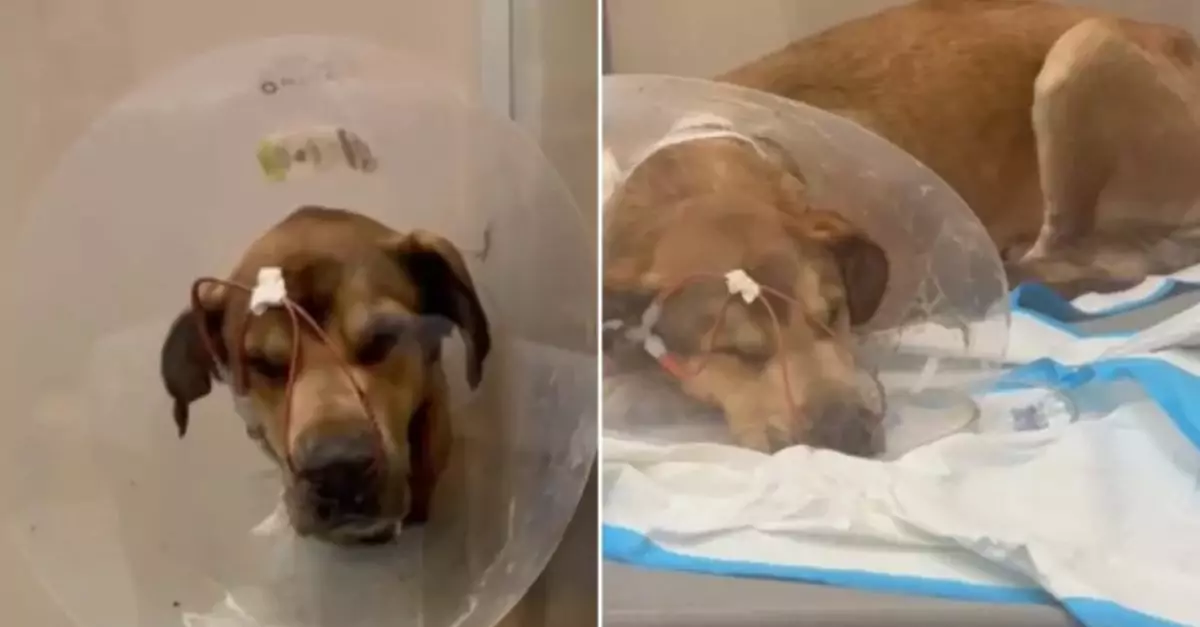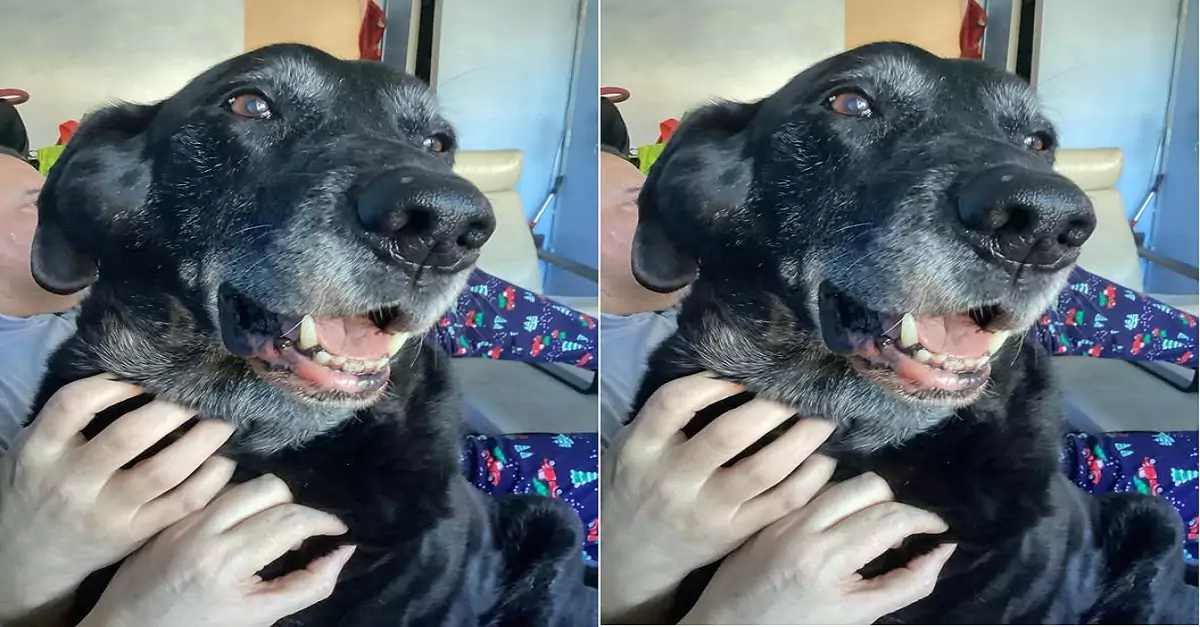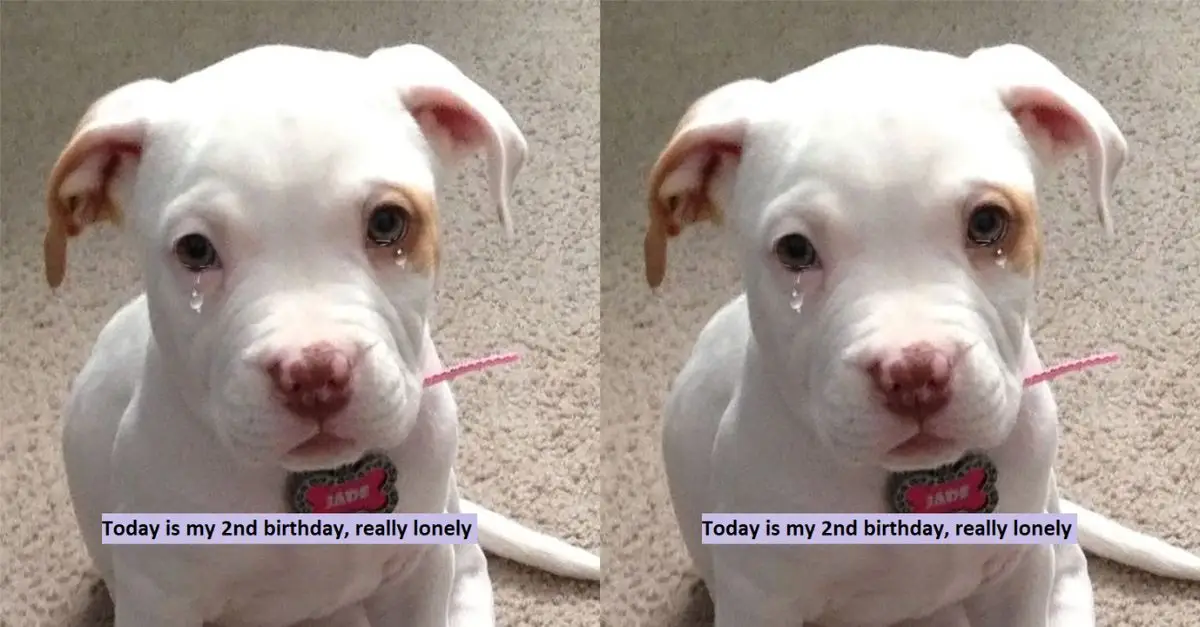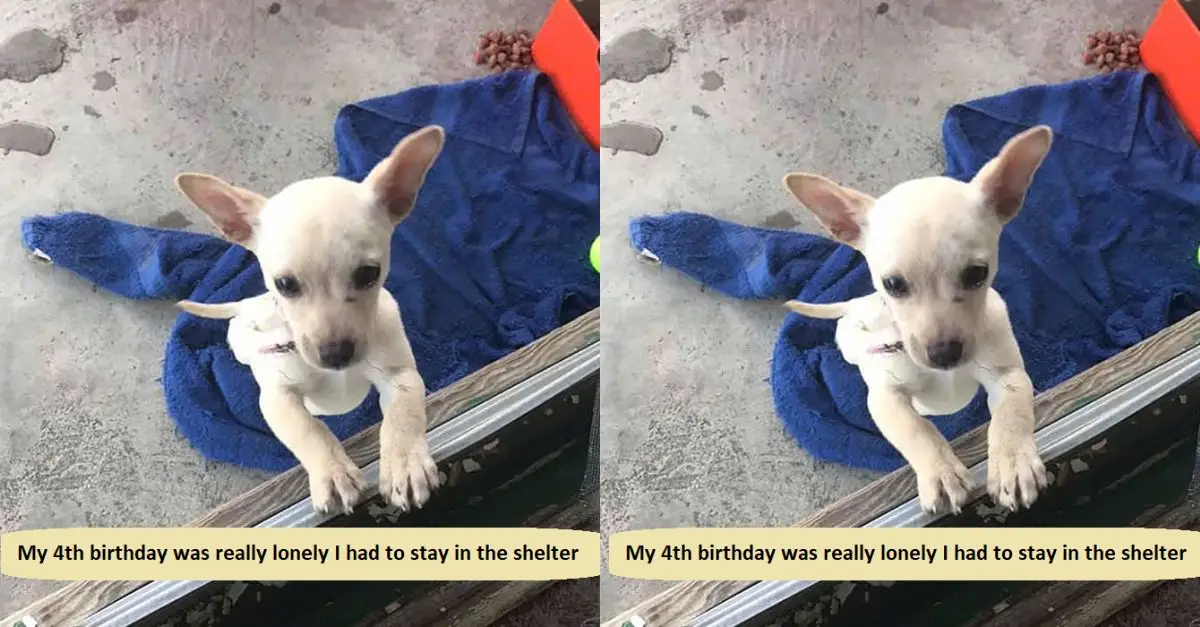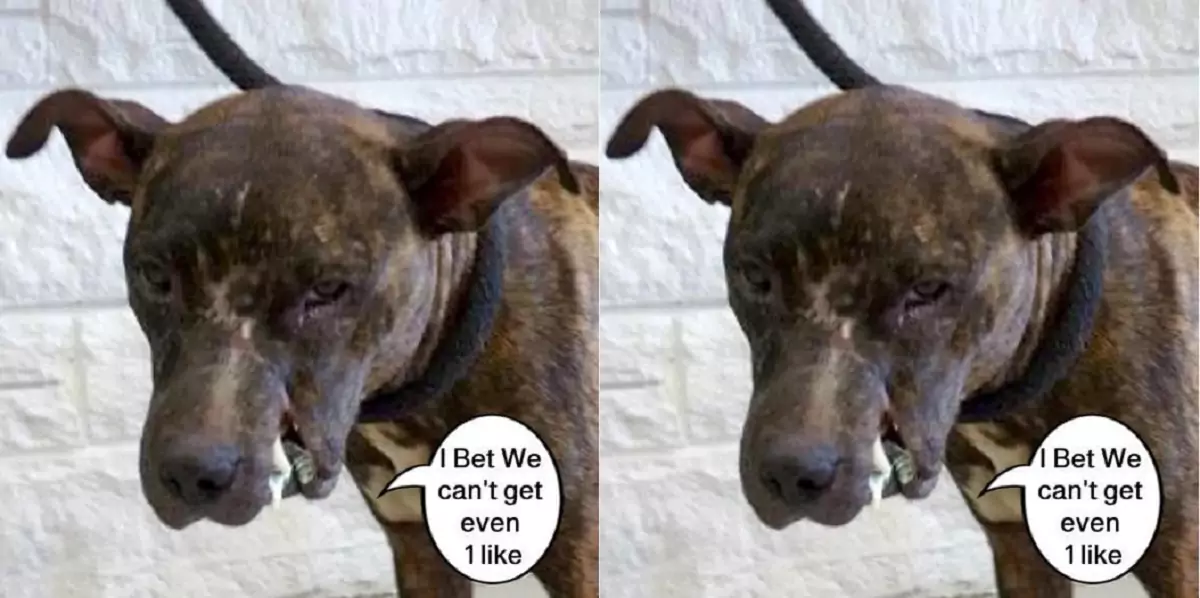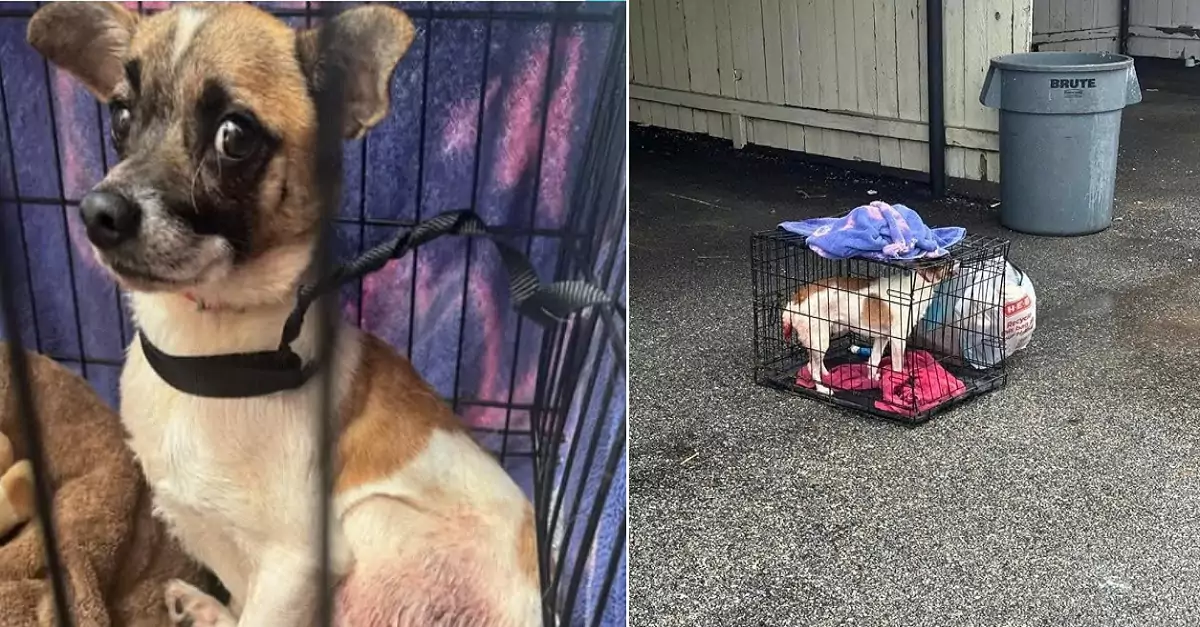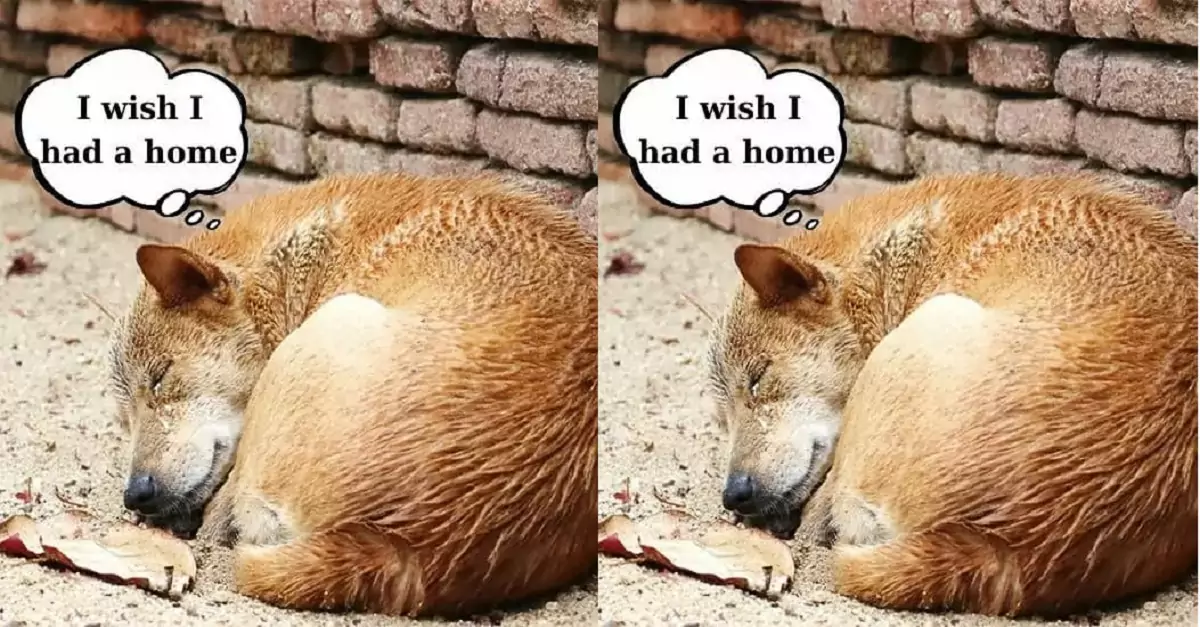It was a quiet morning after a night of heavy rain. The streets were still slick with puddles, and the sky remained overcast, as if the sun itself was hesitant to shine. On the edge of town, where the road curved toward an open field, a woman named Clara was out for her morning walk. She often wandered this path to clear her mind—but that day, her peaceful routine was broken by a faint, desperate sound.
It wasn’t a bark. It wasn’t a whine. It was more like a trembling breath—a soft, almost inaudible gasp coming from the ditch beside the road.
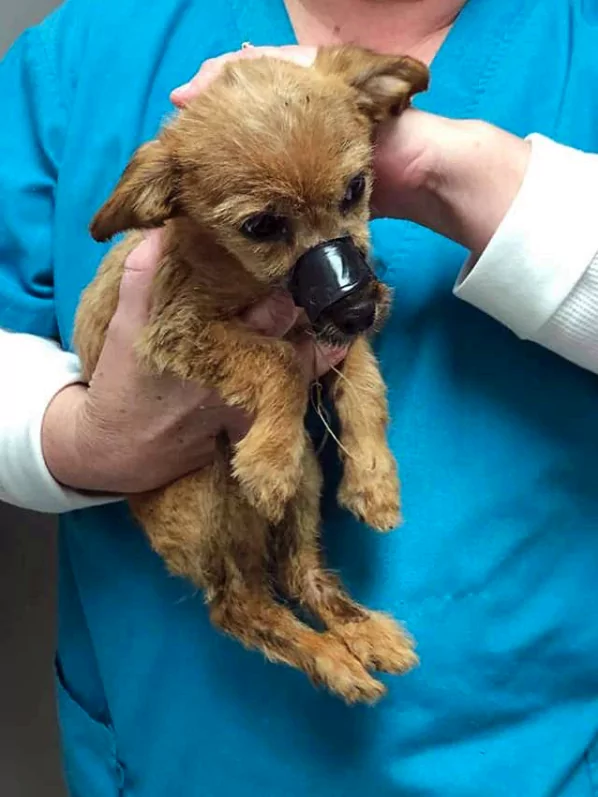
Curious and concerned, Clara moved closer. There, tangled among wet weeds and trash, was a small, trembling bundle of fur. A puppy. Its eyes were wide with fear, its tiny body covered in mud, and its muzzle was tightly bound with layers of black tape, making it impossible to cry out properly. Whoever had left it there hadn’t just abandoned it—they had tried to silence it completely.
Clara’s heart broke in an instant.
She knelt carefully, speaking in a low, soothing voice, trying not to startle the terrified pup. Its body flinched at her every movement, as if expecting more pain. But Clara was patient. With trembling fingers, she removed the tape gently, apologizing with each tug. The moment the last strip came off, the puppy gasped sharply and let out a soft, hoarse whimper—its first sound of freedom.
She wrapped it in her scarf and held it close to her chest, whispering, “You’re safe now. I’ve got you.”
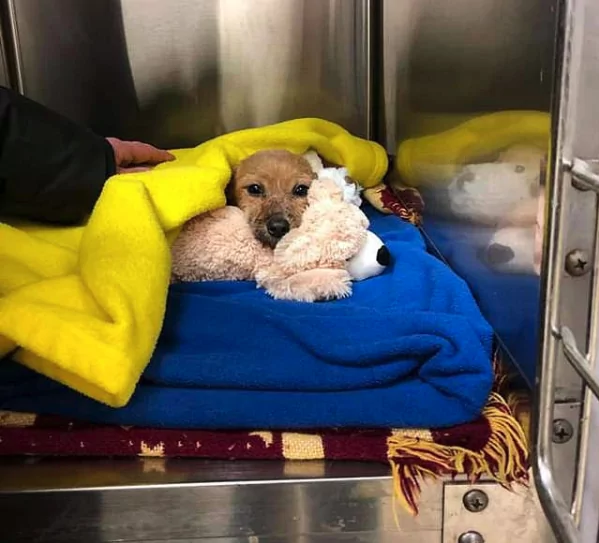
Back at Clara’s home, the real healing began. The puppy wouldn’t eat for the first two days, wouldn’t move far from the blanket Clara laid out beside the fireplace. It flinched at sudden noises and avoided eye contact. But Clara never rushed him. She simply sat nearby, reading, humming, or just being there—quiet, present, steady.
And slowly, something changed.
The puppy began to watch her, his eyes no longer full of terror, but curiosity. He would inch closer when she left food, and eventually, one day, he licked her hand. It was small, almost tentative—but it was the beginning.
In the weeks that followed, his transformation was nothing short of miraculous. He learned to walk without shaking. He began to play—with cautious steps at first, then full, joyous leaps. He followed Clara everywhere, never letting her out of sight. And at night, he curled up beside her bed, his tiny frame pressed against the edge, breathing steadily in the comfort of her presence.
But what was most striking wasn’t just his recovery—it was the way he looked at Clara.
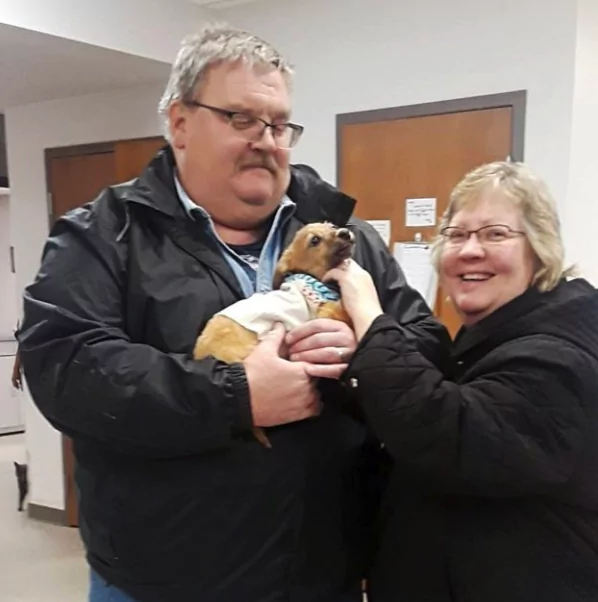
Every time she entered the room, his eyes lit up—not just with happiness, but with something deeper: trust, loyalty, and an unspoken understanding that she had saved him. When she laughed, he wagged his tail. When she was sad, he rested his head on her knee. And when she sat in silence, he stayed close, his quiet warmth saying, “I’m here, too.”
The bond between them grew into something unshakable. Clara had rescued him from that cold, muddy ditch—but he, in turn, reminded her of life’s quiet power to heal, to forgive, and to begin again.
Neighbors who visited would often remark on how gentle and loving the dog was—how calm, how attentive. They didn’t know his full story. They didn’t see the tape or the ditch or the fear. They only saw what love had made of him.
One evening, Clara sat watching him doze beside her. The fire crackled softly, and the room was filled with warmth and peace. She reached down, brushing her hand through his soft fur, and whispered, “You were meant to be thrown away… but you became my heart.”
And in his sleep, the puppy stirred, letting out a soft, content sigh.
Because he knew. He remembered.
And every beat of his healing heart was a silent thank you—for the second chance that changed everything.

